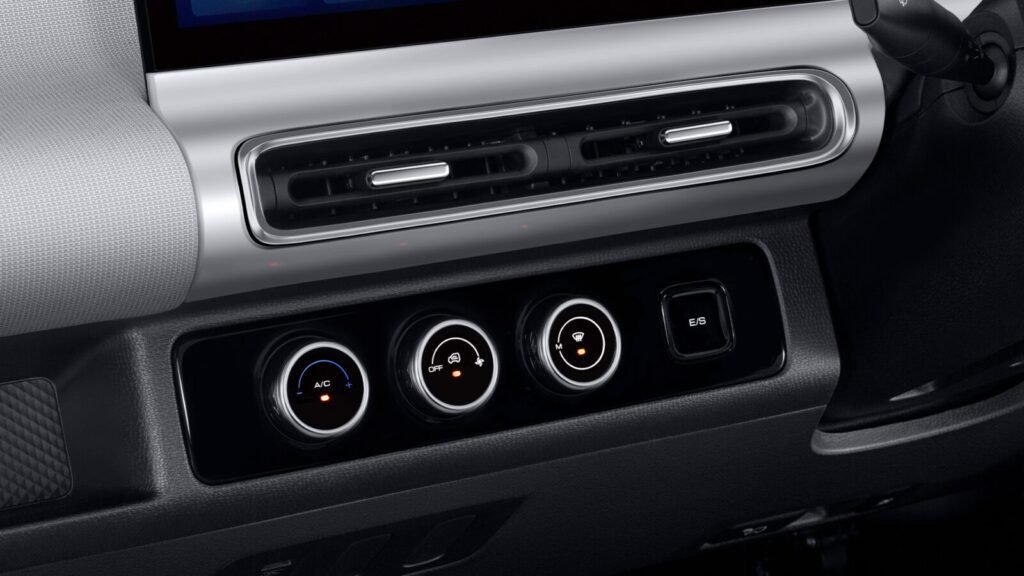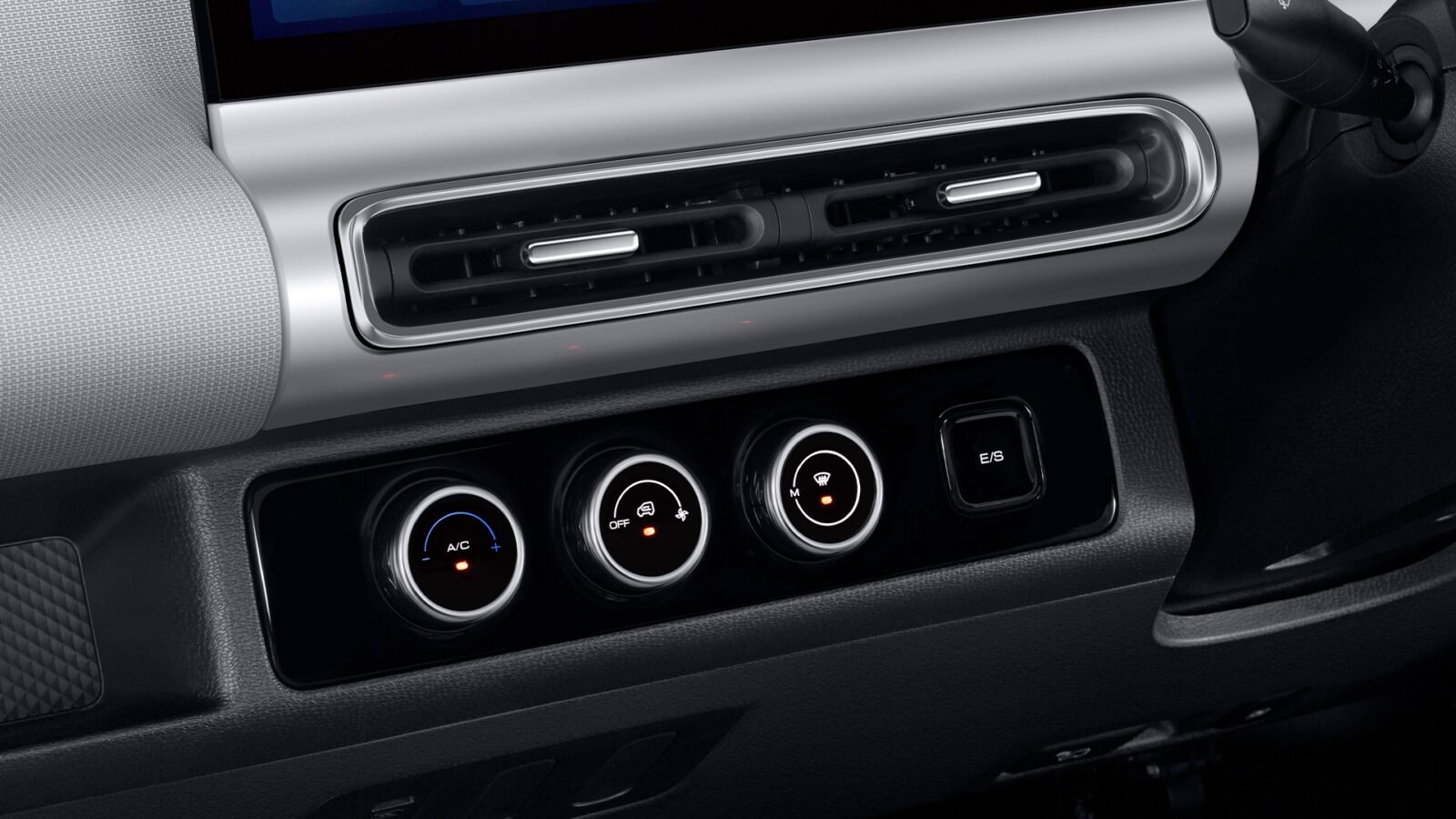As an electric vehicle (EV) owner, you’re likely aware of the importance of maintaining your vehicle’s comfort and efficiency. One crucial aspect is the air conditioning (A/C) system, designed to provide a comfortable driving experience while minimizing energy consumption.

The A/C system in your electric vehicle is unique and differs significantly from traditional internal combustion engine vehicles. Understanding how it works and its distinct features is vital for optimizing your vehicle’s performance.
By grasping the intricacies of your electric car A/C system, you’ll be better equipped to manage its energy efficiency and overall comfort.
Key Takeaways
- Understand the unique features of your electric vehicle’s A/C system.
- Learn how to optimize energy efficiency in your EV’s A/C system.
- Discover the differences between EV and traditional ICE vehicle A/C systems.
- Improve your overall driving comfort with effective A/C system management.
- Gain insights into maintaining your electric vehicle’s A/C system.
How Electric Car A/C Systems Work
The air conditioning system in electric cars operates differently than in traditional internal combustion engine vehicles, offering improved efficiency and unique features. Electric vehicle (EV) climate control is designed to optimize energy consumption while maintaining a comfortable cabin temperature.
Components of an Electric Vehicle Cooling System
An electric vehicle’s cooling system comprises several key components, including the compressor, condenser, evaporator, and heat pump. The compressor, driven by an electric motor, compresses the refrigerant, which then flows to the condenser, where it releases heat.
The evaporator absorbs heat from the cabin, cooling it down. The heat pump plays a vital role in modern EVs, enabling them to maintain cabin temperature efficiently.
Differences from Traditional ICE Vehicle A/C
Unlike traditional ICE vehicles, electric cars use electric motors to drive the compressor, making their A/C systems more efficient. Additionally, EVs often utilize the heat pump for heating, which is more energy-efficient than traditional resistive heating elements.
This results in a more efficient ev climate control system that conserves battery life.
The Role of the Heat Pump in Modern EVs
The heat pump is a critical component in modern electric vehicles, allowing for efficient heating and cooling of the cabin. By reversing the flow of refrigerant, the heat pump can transfer heat from the outside environment into the cabin, or vice versa, depending on the desired temperature.
This process is highly efficient and helps to minimize the drain on the vehicle’s battery, thereby optimizing the overall electric car hvac performance.
The Unique Features of Electric Car A/C System
One of the standout features of electric vehicles is their sophisticated air conditioning systems, which offer improved energy efficiency. These systems are designed to provide a comfortable driving experience while minimizing the impact on the vehicle’s range.
Energy Efficiency Considerations
Electric car A/C systems are engineered to be highly efficient, as they can significantly affect the vehicle’s overall energy consumption. To achieve this, manufacturers employ advanced technologies such as inverter-driven compressors and high-efficiency heat exchangers. These technologies help reduce the energy required to cool or heat the cabin, thereby preserving the vehicle’s range.
Moreover, many modern EVs come equipped with eco-mode or economy mode, which further optimizes the A/C system’s performance by adjusting the temperature settings and fan speed to minimize energy usage.
Battery Temperature Management Integration
Another critical aspect of electric car A/C systems is their integration with battery temperature management. Maintaining an optimal battery temperature is crucial for performance, efficiency, and longevity. The A/C system helps regulate the battery temperature by cooling or heating it as necessary, ensuring that it operates within its ideal temperature range.
This integration is particularly important because extreme temperatures can significantly impact battery performance and range. By managing battery temperature effectively, EV manufacturers can help mitigate these effects and provide a more consistent driving experience.
Pre-conditioning and Remote Climate Control
Many electric vehicles offer features like pre-conditioning and remote climate control, which allow drivers to adjust the cabin temperature before entering the vehicle. This not only enhances comfort but also helps optimize energy efficiency by reducing the need for intense heating or cooling once the vehicle is in motion.
Pre-conditioning can be done using the vehicle’s onboard systems or through smartphone apps, providing an convenient way to ensure a comfortable driving environment while minimizing energy consumption.
Maintaining Your EV Climate Control System
To keep your electric vehicle’s climate control system running smoothly, regular maintenance is crucial. A well-functioning A/C system not only enhances your driving comfort but also contributes to the overall efficiency of your EV.
Recommended Maintenance Schedule
Following a recommended maintenance schedule can help prevent issues and maintain the performance of your EV’s climate control system. It’s generally advised to check the system every 12,000 to 15,000 miles, or as specified in your vehicle’s owner’s manual.
Key maintenance tasks include:
- Inspecting the A/C system for leaks or damage
- Checking and replacing cabin air filters as needed
- Ensuring the refrigerant level is adequate
DIY Maintenance Tips
Some maintenance tasks can be performed by yourself, such as checking and replacing cabin air filters. This simple task can significantly improve the efficiency of your A/C system and overall air quality inside your vehicle.
To replace cabin air filters:
- Locate the filter housing, usually found behind the glove compartment or under the dashboard
- Open the housing and remove the old filter
- Install a new filter, ensuring it’s properly seated and the housing is securely closed
When to Seek Professional Service
While some tasks can be DIY, others require professional attention. If you notice any of the following issues, it’s time to seek help from a qualified technician:
- Refrigerant leaks or low refrigerant levels
- Compressor failures or unusual noises from the A/C system
- Electrical issues related to the climate control system
Professional service can help diagnose and repair complex problems, ensuring your EV’s A/C system operates efficiently and effectively.
Electric Car Air Conditioning Service and Repair
The air conditioning system in your electric car is not just a comfort feature; it’s a critical component that requires regular maintenance and occasional repair. As electric vehicles (EVs) continue to gain popularity, understanding the specifics of their air conditioning systems becomes increasingly important for owners.
Despite their efficiency, electric car A/C systems can still experience problems. Common issues include refrigerant leaks, compressor failures, and electrical faults. These problems can lead to reduced system performance, increased energy consumption, and potentially damage other components of your vehicle.
Common A/C Problems in Electric Vehicles
Electric vehicle air conditioning systems, while efficient, can be prone to specific issues. Some of the most common problems include:
- Refrigerant leaks due to worn-out seals or damaged components
- Compressor failures, which can be costly to repair
- Electrical faults, often related to the complex electronics controlling the A/C system
- Clogged air filters reducing airflow and system efficiency
Regular maintenance can help prevent some of these issues, but when problems arise, it’s crucial to address them promptly to avoid further damage.
Finding Qualified EV A/C Technicians
When your electric car’s air conditioning system needs repair, finding a qualified technician is essential. Not all mechanics are familiar with the unique aspects of EV A/C systems, so it’s important to seek out professionals with experience in electric vehicle technology.
To find a qualified technician, you can:
- Check with your vehicle’s manufacturer for recommended service centers
- Look for ASE-certified technicians with EV-specific training
- Ask for referrals from other EV owners or online forums
Cost Considerations for Electric Car A/C Repairs
The cost of repairing an electric car’s air conditioning system can vary widely depending on the nature of the problem and the specific vehicle. Here’s a general breakdown of potential costs:
| Repair Type | Estimated Cost Range |
|---|---|
| Refrigerant Recharge | $100 – $300 |
| Compressor Replacement | $500 – $1,500 |
| Electrical Fault Diagnosis | $100 – $500 |
| Air Filter Replacement | $20 – $100 |
Understanding these potential costs can help you budget for maintenance and repairs, ensuring your electric vehicle’s air conditioning system remains in good working order.

By staying informed about common issues, finding qualified technicians, and understanding the costs involved, you can keep your electric car’s air conditioning system running smoothly and efficiently.
Maximizing Range: A/C Usage and Battery Life
Maximizing your electric vehicle’s range requires a deep understanding of how its A/C system works and impacts its overall performance. The air conditioning system is one of the most significant auxiliary loads in an electric vehicle, and its usage can substantially affect the car’s battery life and overall range.
As Tesla’s CEO, Elon Musk, once said,
“The range anxiety is real, but it’s not just about the range; it’s about the efficiency of the vehicle.”
This statement highlights the importance of optimizing your EV’s A/C usage to maximize its range.
Balancing Comfort and Energy Consumption
To strike a balance between comfort and energy consumption, you need to understand how your EV’s A/C system operates. The A/C system works by transferring heat from the cabin to the outside environment, which requires energy from the battery. By using eco-friendly climate control settings, you can minimize energy usage while maintaining a comfortable driving experience.
For instance, using the “eco” mode or adjusting the temperature settings can help reduce the load on the A/C system. Additionally, pre-conditioning your vehicle’s cabin while it’s still connected to a power source can also help minimize the energy consumed by the A/C system.
Eco-Friendly Climate Control Settings
Most modern electric vehicles come equipped with eco-friendly climate control settings that can help you optimize your A/C usage. These settings may include features like:
- Recirculation mode, which reduces the load on the A/C system by reusing the cooled air inside the cabin.
- Temperature adjustments, which allow you to raise or lower the temperature to a comfortable level while minimizing energy consumption.
- Eco-mode, which optimizes the A/C system’s performance to reduce energy usage.
Future Innovations in EV Cooling Technology
The future of EV cooling technology looks promising, with several innovations on the horizon. Some of the emerging trends include:
| Innovation | Description | Benefits |
|---|---|---|
| Advanced Compressors | More efficient compressors that reduce energy consumption. | Increased range, reduced energy consumption. |
| Smart Climate Control Systems | AI-powered climate control systems that optimize A/C usage. | Improved comfort, reduced energy consumption. |
| Thermal Energy Storage | Systems that store thermal energy for later use, reducing the load on the A/C system. | Increased efficiency, reduced energy consumption. |
By adopting these strategies and staying informed about the latest innovations in EV cooling technology, you can enjoy a comfortable driving experience while minimizing energy consumption and maximizing your vehicle’s range.
Conclusion
Understanding your electric car’s A/C system is crucial for a comfortable and efficient driving experience. By grasping how the system works and its unique features, you can optimize its performance and extend the lifespan of your vehicle.
As you’ve learned, the electric car A/C system plays a vital role in maintaining a comfortable cabin temperature while minimizing energy consumption. By following the maintenance tips and insights provided earlier, you can ensure your EV’s A/C system operates efficiently and effectively.
Staying informed about the latest developments in EV cooling technology will also help you make the most of your vehicle. As the technology continues to evolve, you can expect even more innovative solutions to enhance your driving experience.
By taking control of your electric car’s A/C system, you can enjoy a more efficient, comfortable, and enjoyable driving experience.
FAQ
How does the air conditioning system in an electric vehicle work?
The air conditioning system in an electric vehicle uses an electric motor to drive the compressor, making it more efficient than traditional internal combustion engine vehicles. It works in conjunction with the heat pump to maintain cabin temperature efficiently.
What are the unique features of an electric car A/C system?
Electric car A/C systems have several unique features, including energy efficiency considerations, battery temperature management integration, pre-conditioning, and remote climate control. These features work together to provide a comfortable and efficient driving experience.
How can I maintain my EV’s climate control system?
Regular maintenance is essential to ensure your EV’s climate control system operates efficiently. You can perform DIY tasks like checking and replacing cabin air filters, but certain tasks, such as refrigerant leaks or compressor failures, require professional service.
What are common A/C problems in electric vehicles?
Common issues with electric vehicle A/C systems include refrigerant leaks, compressor failures, and electrical faults. Finding a qualified technician with experience in EV A/C repair is crucial for effective diagnosis and repair.
How can I maximize my EV’s range while using the A/C system?
To maximize your EV’s range, you can use eco-friendly climate control settings, such as adjusting the temperature or using the “eco” mode. Understanding how to balance comfort and energy consumption is essential for optimizing your EV’s A/C usage.
What are some future innovations in EV cooling technology?
As EV technology advances, innovations in cooling technology are emerging, such as more efficient compressors and advanced climate control systems. These developments aim to further improve the efficiency and performance of EV A/C systems.
How does the electric vehicle air conditioning system impact battery life?
The A/C system can impact an EV’s battery life, as it consumes energy. However, modern EVs often integrate battery temperature management with the A/C system to optimize performance and efficiency, minimizing the impact on battery life.
Can I perform electric car A/C repair myself?
While you can perform some DIY maintenance tasks, such as checking and replacing cabin air filters, certain tasks, like refrigerant leaks or compressor failures, require professional service from a qualified EV A/C technician.




